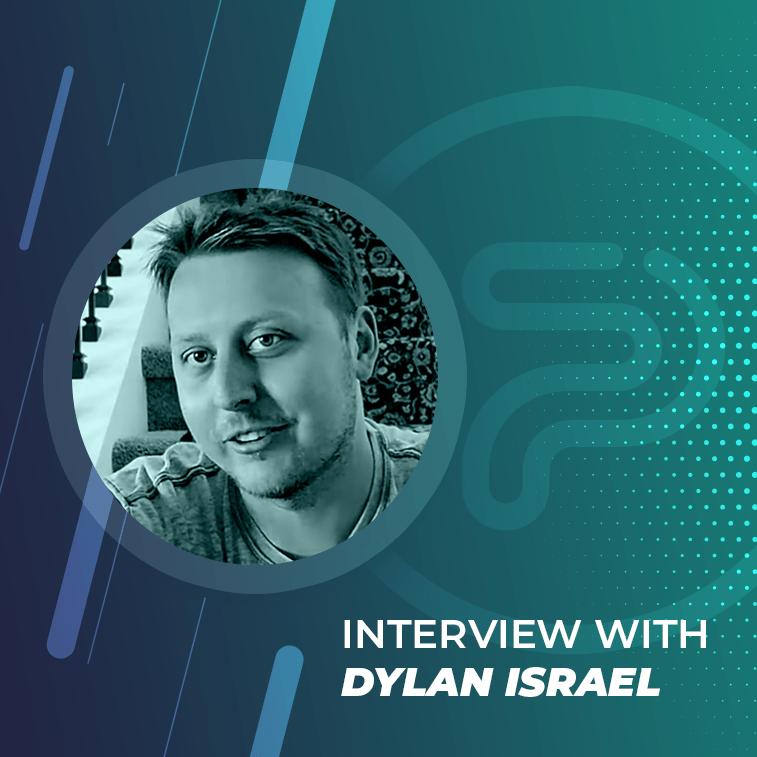Dylan Israel is a web dev all-around. Besides having years of experience in development, he makes YouTube tutorials, co-hosts a podcast, (not so eagerly) writes books, mentors junior developers, holds conference talks, and much more. We recently had the honor to interview Dylan and discuss his development beginnings, work ethics, favorite frameworks, and why things just “won’t work out”.
When we first began online research on Dylan, we discovered that in his Twitter bio, he was named Time Magazine’s 2006 Person of the Year. We were amazed and dug deeper into investigation. Then, we found that 2006 was the year when “you” i.e. everyone who daily contribute to shaping the online world, was declared the Person of the Year. Dylan’s strategy definitely works.
“I was looking for something interesting that would catch somebody’s eye, people would Google it and find what it’s about and have a good laugh.”
It wasn’t how he felt back in 2006, but he says that today he does feel strongly about the software engineering community and that he follows the idea of Uncle Bob about craftsmanship.
“Being a craftsman, you have apprentices and essentially community is a real big thing in software engineering, especially as so many of us are introverts.”
On the polarity of being an introvert and making videos for over 70,000 YouTube followers alone, Dylan says he’s now much better than before.
“It’s funny that I am an introvert as I have thousands of videos online. I’ve definitely come out of my shell in that sense. But if I am at a large gathering I kinda shrink in, back to my old habits. I’m not super outgoing. But this is a generalization, so it’s not gonna apply to everybody, but most developers can understand being a little bit more in a shell. It takes a little bit more effort to go and put myself out there. But digitally it’s much easier, cause it’s one way at times, it’s much more a one way conversation where I’m only putting out what I want to put out, so I don’t have to be right there. It’s sort of a cop out cause some people think like oh you’re so outgoing, and it’s not really, it’s sort of a compromise I guess.”
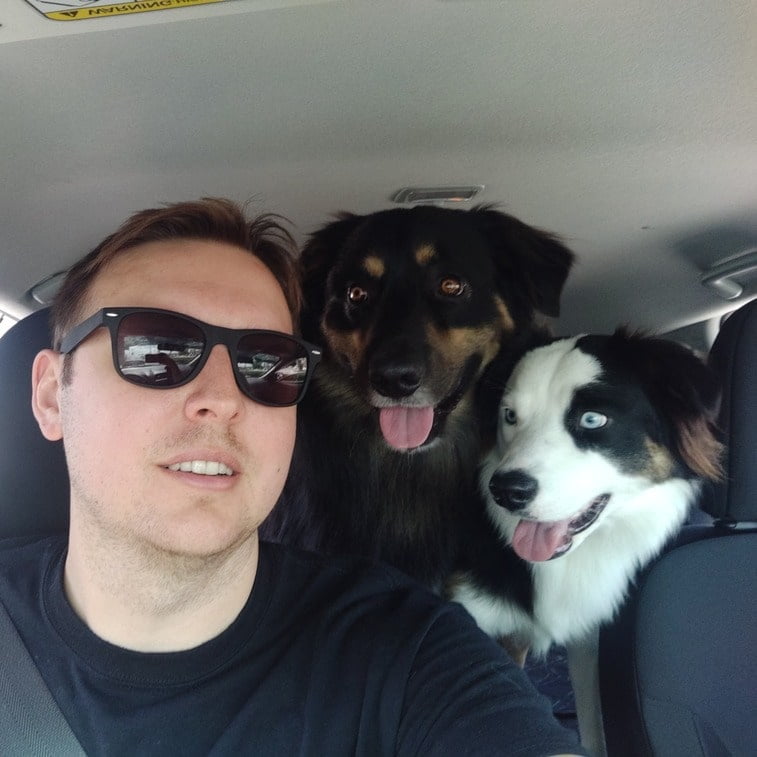
Dylan got the idea of making videos from his friend Matt, the creator of the Engineered Truth YouTube channel. The initial idea was to create a video portfolio, by recording his coding process.
“I just narrated what I was doing in the code. Nowadays I’m giving advice, I’m having more of a dialogue where I just say my thoughts about the industry, this is what I think you should do. That stuff never happened in the early days, I didn’t feel comfortable, who am I to sue that. Instead, I was just narrating myself through the tutorials.”
For Dylan, this method posed less risk in order to avoid people’s judgments, though he admits that wasn’t the healthiest mentality to have.
“But I didn’t feel comfortable giving advice, it was just – this is what I’m doing, this is part of the code and this is why.”
However, today Dylan’s a bit more direct than earlier and more willing to explain why something’s good or bad.
“People like to play safe, but when others come to you with questions, you don’t want to be wishy-washy.”
In one of his videos, Dylan outlined his development learning game plan.
“I asked myself, what am I trying to accomplish. Well truly what I’m trying to accomplish is being a working professional, work in software engineering. That is the goal. I’m not here just to sit, twiddle my thumbs and make to-do lists, but to get the skills and go get the job. So, I asked myself who’s hiring – well employers are hiring.”
He analyzed hundreds of job postings, made a checklist with the required and preferred column of skills employers seek in applicants. Setting his mind on getting those calls back, Dylan now knew the skills he was missing and those he needed to emphasize in his resume.
“Basically you start catering your resume for developers but that’s not who’s looking at your resume for the most part.”
As for surprises during his research, Dylan states he realized that not all required skills were really required, and not all preferred were really preferred.
“At the time it was a bit harder to decipher, you had to read [job postings] between the lines. But nowadays it’s much easier.”
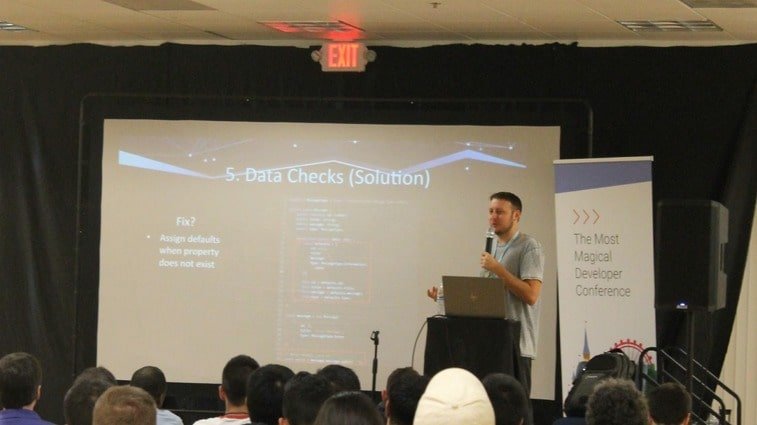
Dylan studied software engineering, but by the time he got to do what he wanted to do, he didn’t have any energy left to do it.
“I was sick of being miserable in college, so I devised a game plan of how I was going to get out. I got an internship and I started studying. The quickest way for me to get into development is to become a front-end engineer and so to be a good front-end engineer I had to learn JavaScript, HTML, CSS and responsive web design.”
At that time, Dylan came across FreeCodeCamp.
“It’s funny when I reflect back on this, as I was doing all these tutorials, putting 4 to 8 hours in it, and at some point I did every tutorial they had on Codecademy, it never occurred to me to actually build something of my own.”
The moment he got his first project was the moment when he said he really loved it.
“It started to make sense, and exponential growth was happening.”
On the topic of college, Dylan calls himself a ‘proud two-time college dropout’. He elaborates on the proud part:
“It’s hard to quit something you’ve dedicated time and resources to, even if you’re being unsuccessful in it. You see people have an idea and put time and energy into a business but the reality is they probably won’t be able to see long term, and be happy in the long term. So it is hard to drop things, much like a bad relationship and it’s going to hurt no matter what you do. It takes an adult to know when to quit.”
Dylan doesn’t believe that having a degree helps you much in getting into the working world, though if you’re planning to quit, he’s got a tip for you:
“You can’t just drop out of college without a game plan and say oh I’m gonna be on equal playing field. Organizations will prefer people with bachelors so you have to make up for that.”
Numerous algebra, discreet mathematics, calculus, trigonometry, physics and similar classes he took in college did little in his web development career, whereas coding classes, though enjoyable, focused on programming languages Dylan didn’t code in.
“It’s not about what colleges are lacking but rather about, if I gave you 50,000 dollars and 4 years of time you’d be in position to have something of your own with that amount of energy, time, and money. If you worked on it consistently. But a lot of people struggle with holding themselves accountable. Just don’t think things are going to work out – they won’t. You have to make calculated decisions and take one step forward every day. So, if you want to own a small business you have to think what that small business will be, how you’re gonna raise capital for it how you’re gonna start that while working another job and you really have to think about these things and not just assume they’re gonna happen.”
Everyone works hard, but if you do intelligently as well, the question of success isn’t if, but when, Dylan concludes.
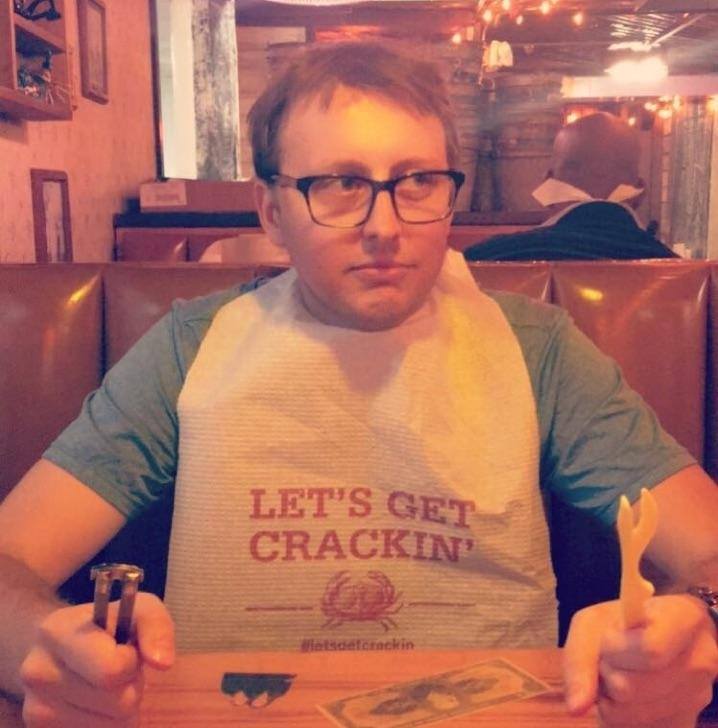
“If there’s one tip I can give to anybody is that consistency is the number one path to success.”
For Dylan, coding is a skill that builds upon itself. A week off from coding isn’t a lost week of momentum.
“What really happened is you went back three to four weeks from where your coding was.”
He too had bad days, filled with frustrating and crying over not understanding what he didn’t understand.
“But you have to figure it out, make time, keep it fun, and progressing.”
On his personal organization, Dylan admits he’s not super organized, but he is passionate.
“I just do what I wanna do. My YouTube channel subscribers and views go up and down. I care and appreciate everyone following my work, but my channel is about me, what is it that interests me, what is that I want to learn, what is it that’s going to help my career progress, what’s fun to me. Anyone who can benefit along the way – great, but I want to be happy with what I’m doing, not chasing other people’s views, or impress others.”
As for the “twice a developer in a year” mantra, Dylan confesses it’s a rate hard to maintain. For now, he’s focused on filling the mentoring and collaborating gaps.
“The majority of my job now is to help junior developers in their development, and it takes a bit of patience, understating, and communication.”
The mentoring wasn’t something on his list “not even in the backlog”, but it was a logical step in his own career progression.
Object-oriented programming and testing are Dylan’s two main coding principles. Those are the things he gives credit to when it comes to progressing from junior to senior developer.
“If there’s one book I could recommend, it would be Clean Code.”
If he’d to single out one defining moment in his career, it would be quitting doing overtime.
“Many businesses aren’t too happy about that. But I’m a high producer, I work so much outside job.”
The epiphany came after one of the project’s launches he’d been working on got canceled last-minute.
“Nobody dies if it isn’t delivered in time. Most of the time development didn’t deliver, but had limited or no say at all in that.”
On the question of Angular and React, Dylan has an obvious favorite.
“React is the front-runner. I use it personally, but I don’t like what others do, which is so many dependencies. People hook on using these for life. Generally, people want to understand higher principles, routing, data binding. However, memorizing rather than understanding will get you nowhere.”
He loves TypeScript and plans to do a paid course on it for time to come. As for Python, Dylan exhaled “oh, God”. It’s his second favorite language, after JavaScript, on which he looks back fondly, as he built a tower defense game using Python during his college days.
“I thought about transitioning into data science, and if I get serious and put the energy and time into it, that will the time when Python tutorials would start coming. So, if you see Python tutorials coming it’s because I’m making a transition.”
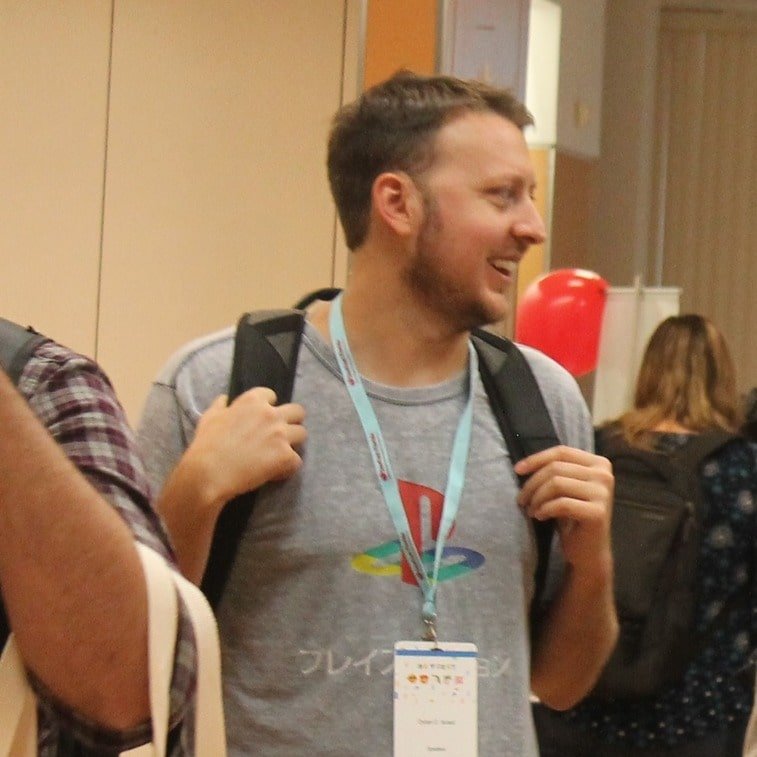
Dylan co-hosts a podcast with Eric Hanchett, where they discuss development from the perspectives of a self-taught (Dylan’s) and a trained (Eric’s) developer. On whether he notices any differences between their work methodologies and philosophies, Dylan answers:
“Definitely, Eric’s a bit more reserved and traditional, and I’m more of a loose cannon. I would say something is a horrible idea, he’d say ‘I like what you’re doing, but how about this’. We line on quite a bit, and we share passions, partnership and friendship.”
Probably the largest difference between the two is that Eric focuses on the niche, whereas Dylan believes in going broad.
“It’s going to help you be relevant for more things, while going niche won’t help you with that.
To those who go into development solely for the money, Dylan says they have to be mentally prepared for what it takes to get to being a professional.
“I’ve seen many senior devs seeing themselves in 10 years doing the same, and that crushes their soul. To a degree you have to enjoy it, there’s so much time and energy involved.”
Before entering the world of development, Dylan worked in pizza delivery. He fondly recalls those days, and says he’d sometimes even go back to it as a part-time job during the weekends. For him, the work there allowed him to meet people who’d fit into his “negative role-model concept”.
“It’s not a judgement of my former coworkers, but I would pick out mental notes of people I don’t want to be like, worrying about money, health problems, kids. People who have no plans, thinking ‘I’m just gonna figure it out’, and in 5 or 10 years you’ll figure out that you didn’t figure it out. People just think things are going to happen but they don’t, people won’t show up at your door offering you opportunities. For the most part, you have to go and figure out what it is you’re gonna do and how you’re gonna do it and be one inch closer every day to getting there.”
He sees being active and productive led him to a much better position, and that life halted for a year will lead you to a lifetime of gains.
For newcomers into the industry, Dylan’s got three pieces of advice: side projects, consistency, and the basics of a decent resume – “an updated LinkedIn, a visible GitHub”.
“The most difficult will be getting the first job. Learning the code isn’t gonna be the hardest, but the chance to get experience will require the same effort as learning. So, you have to make sure you’re an outstanding candidate.”
Thank you, Dylan, it was a true pleasure having you!
